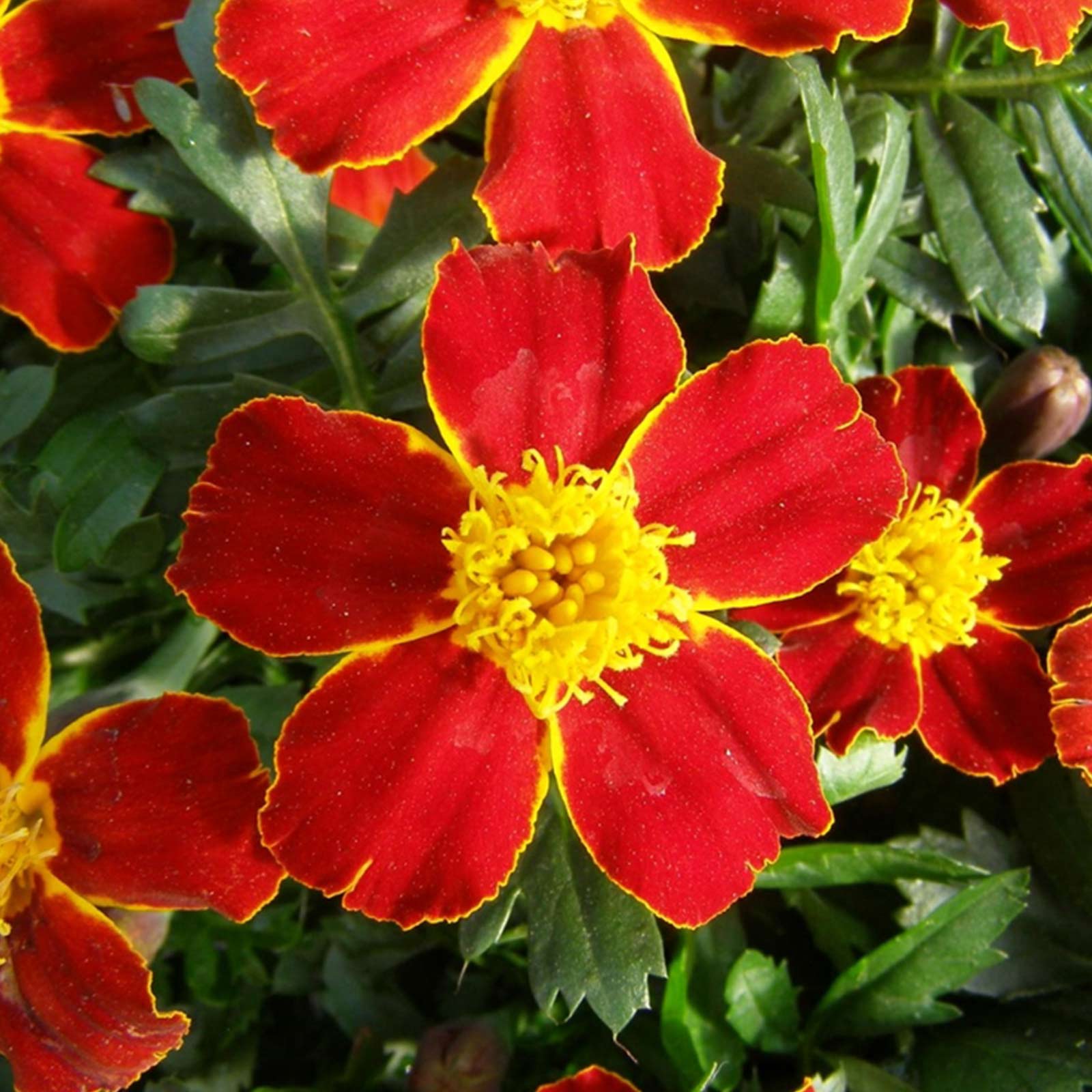This post will begin a series of several posts that I believe are “must have” garden plans! These are plants that I think are great for the garden in some way. Maybe they are beneficial for growing other plants, have some important benefits, maybe in the case of vegetable produce are delicious, or are simply beautiful plants to have around! In all likelihood any “must have” plants will fall into multiple categories. For my first selection I want to mention Marigolds!
Some of the links below are affiliate links which means, at no additional cost to you, GTHG will receive a small commission should you purchase a product through the link.*
Marigolds
Marigolds are one of the easiest plants to grow, are extremely beautiful, and are also very beneficial when planted in the garden! How’s that for a trifecta? Marigolds themselves come in several categories: French, Signet, African, and Hybrid marigolds.

The French and African marigolds may be the most beneficial of these types of marigolds in the garden due to a powerful ability to repel harmful nematodes in the soil. Nematodes are highly damaging to roots and tubers. Nematodes are teeny tiny microscopic roundworms that gnaw on the roots causing the damage. That root damage can prevent the roots from absorbing water and nutrients properly and we all know that without good roots the rest of the plant won’t thrive.
More Info: Guide to Growing Marigolds
Fighting Nematodes with Marigolds
French marigolds (Tagetes patula) and African marigolds (Tagetes erecta) planted in a bed will help to reduce the presence of nematodes that damage roots. Two strategies you can use to prevent nematodes are to plant marigolds as companion plants or include marigolds in crop rotation plans. For companion planting just direct sow marigold seeds in and around plants that are sensitive to nematodes like tomatoes, peppers, potatoes, and beans. Alternating rows of marigolds with your vegetable plans will help to protect the roots from damage. If you are rotating crops each year then plant the problem beds with marigolds to grow for that season. Then you can follow up the next season with a fresh crop after the marigolds have spent some time there the previous year. (This article about Marigolds from Clemson is well worth a read!)
Attracting Pollinators
All these marigolds will attract pollinators to the garden. Pollinators can do a couple important things, the most obvious being pollinating! Pollinators like bees and wasps will come to the garden in search of the colorful flowers and stop over on vegetable plants and other flowers while they are there. Think of marigold flowers like flashing neon signs for the pollinators. Bees and wasps will scare away insects that like to munch on your vegetable plants. They hear that buzz and think it’s a predatory wasp coming to get them…which it might be!

Marigolds are also a good repellent for deer and rabbits. Deer and rabbits don’t like the flavor of marigolds and leave them well enough along. By planting repellent plants in and among your other plants you can share some of the protection benefits!
Marigolds are Easy to Grow from Seed
Seeds are the best and easiest way to grow marigolds. You can buy them as transplants but you can grow so much more from seed. More varieties and more plants in general. They will also root from cuttings if you want to try that as well.
Pick your favorite marigold variety and plant it in a container after all danger of frost has passed, or to get a jump on the season plant indoors 4-6 weeks before the last frost date in your area. Lightly cover the seeds with soil and keep the seeds moist until germination. Once your plants get a first set of true leaves you can transplant them.
Once planted marigolds need a little watering and care to get them established then are fairly carefree! In the fall they will produce seeds which you can collect and start the process over again.
Marigolds are annuals so plan on planting them in the garden each and every year. Direct sowing in the vegetable garden is an excellent way to plant them and add the beauty and benefits of marigolds to your crops!
Visit our Affiliate True Leaf Market for some Marigold seed options!

This unique strain of Marigolds will brighten your garden with their vibrant colors and… [More]

Tagetes patula 10-12 inches. Single flowers 2 inches across on compact plants. Discos … [More]
Discover more from Growing The Home Garden
Subscribe to get the latest posts sent to your email.

